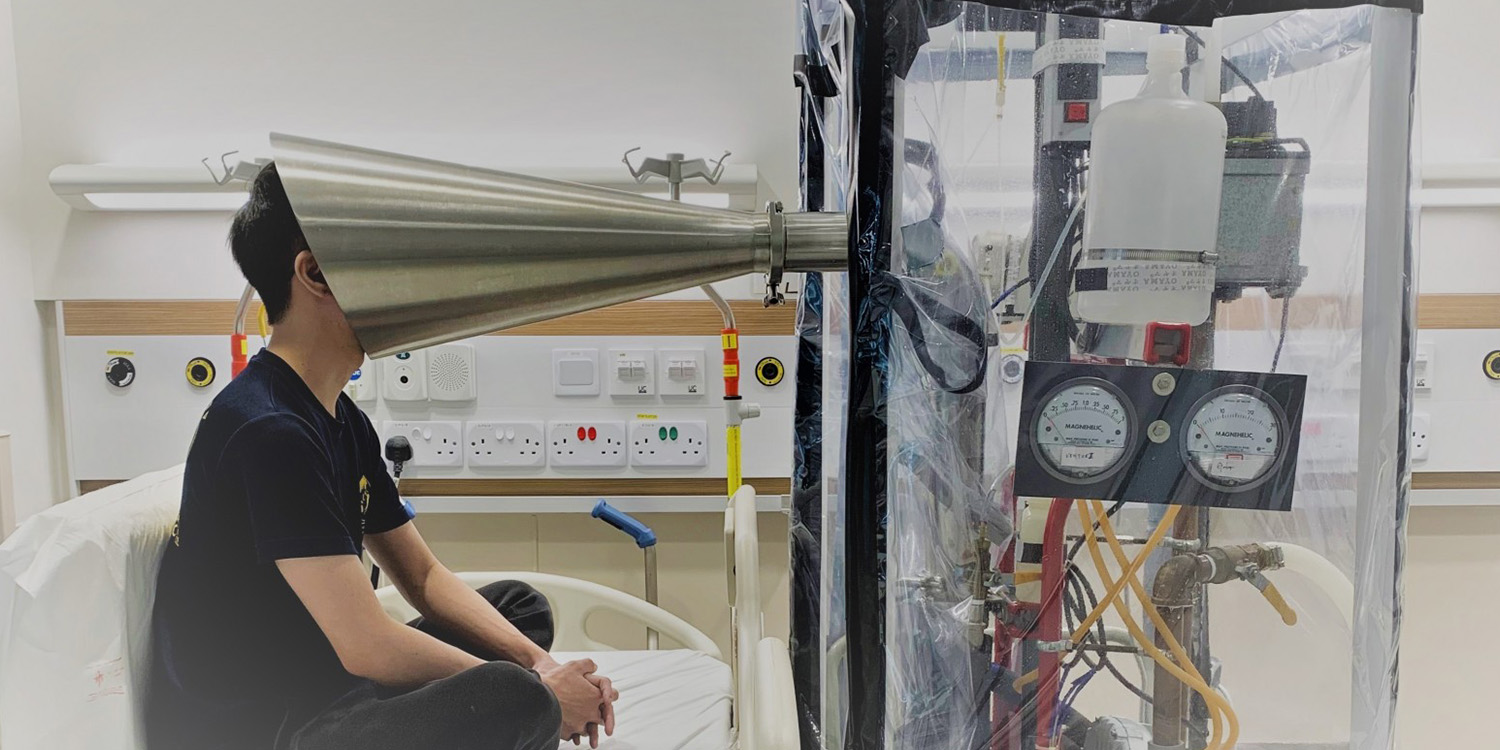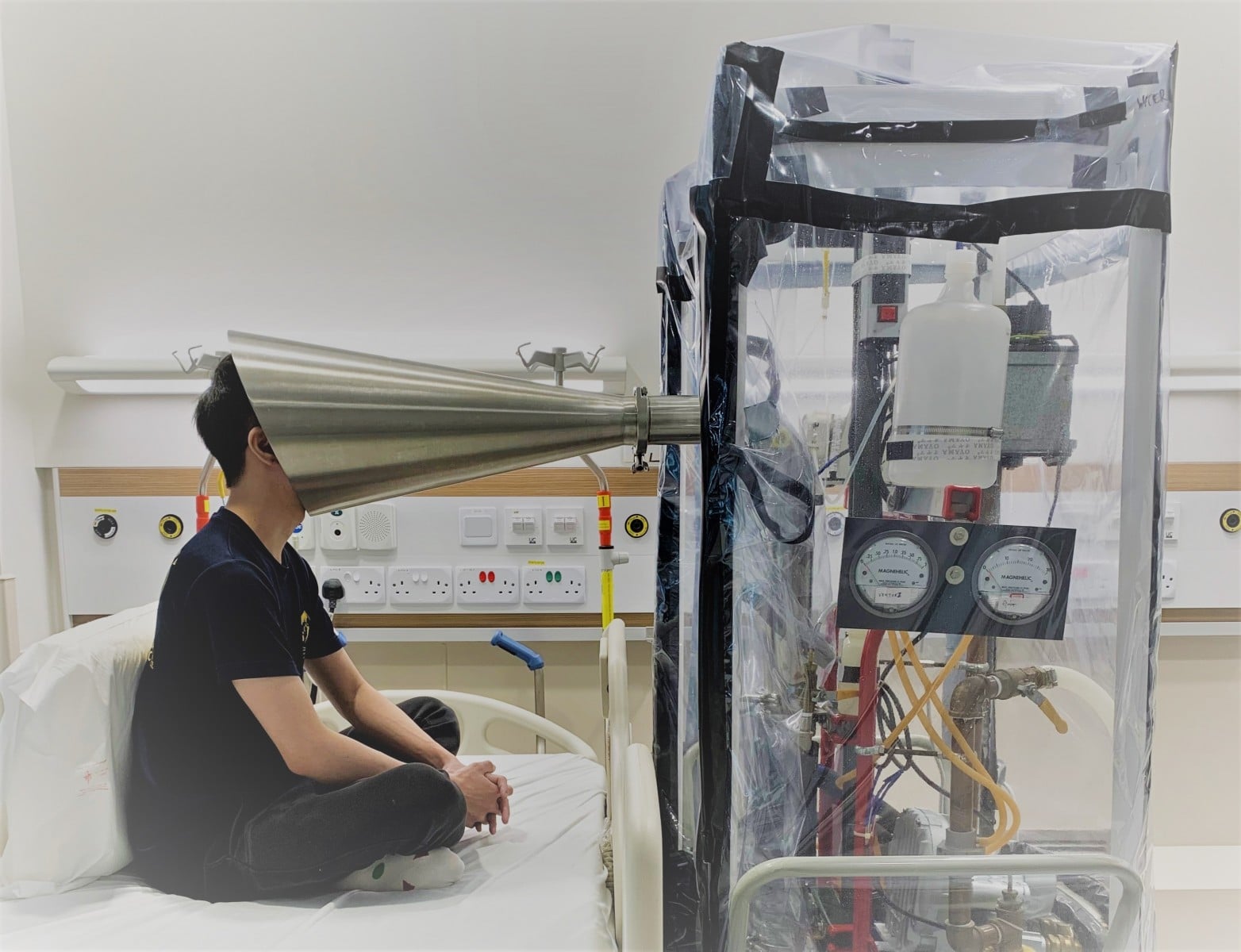Breathing & Talking Also Transmits Covid-19, Not Just Coughing Or Sneezing
When Covid-19 first emerged, researchers thought that it was most likely passed through coughing or sneezing. However, a Covid-19 study recently proved that there may be more to this.
A new study by a group of researchers from the National University of Singapore (NUS) revealed that Covid-19 can be transmitted not only through coughing or sneezing, but by simple activities such as talking, singing, and even breathing.
The researchers warned that it is absolutely crucial for people to adhere to safety measures such as wearing a mask, safe distancing and increasing room ventilation, especially indoors.
We summarise the study below.
Talking causes virus to spread, reveals new NUS study
A team of researchers from NUS was formed to find out more about the transmission of Covid-19, hosted by the National Centre for Infectious Diseases (NCID).
They found out that there are more Covid-19 viral particles generated through talking or singing than coughing and sneezing.
These activities cause the generation of fine aerosols which contains more viral particles than “coarse aerosols” from coughing or sneezing.
According to project leader Associate Professor Tham Kwok Wai, this is the first study to reveal this piece of information.
Hence, it would be helpful as the foundation for estimating the risk of transmission of infection.
Covid-19 positive patients took part in study
For the study, 22 Covid-19 positive patients took part.
The patients selected had been admitted to the NCID between Feb and Apr 2021.
Researchers had to perform whole-genome sequencing on those selected to determine their viral strains of infection.
The participants then proceeded to perform 3 separate expiratory activities on the same day.
This included 30 minutes of breathing, 15 minutes of talking through reading aloud, and 15 minutes of singing.
They were also given breaks in between to ensure their safety and well-being.
Participants had to use a specially designed exhalation collection equipment known as the Gesundheit-II.
During the activities, participants had to place their heads in the cone-shaped inlet of the Gesundheit-II.
The cone acts as a ventilation hood where air is continuously drawn around the participant’s head. Doing so would allow the equipment to collect expiratory particles into the connecting sampler.
Results showed that virus particles emitted when infected patients breathe, sing and talk, all have the ability to transmit Covid-19.
Safe distancing measures crucial to prevent Covid-19 transmission
With the new findings, it is even more important to practice Covid-19 safety measures, the researchers said.
Such measures include wearing a mask, social distancing, increasing room ventilation, and more efficient filtration and appropriately applied air-cleaning technologies.
As for the new variants going around, especially the Delta variant which is more infectious, researchers will continue their further studies to understand how it may differ.
You can take a look at the full study here, published in the Clinical Infectious Diseases journal on 6 Aug.
Practice safe distancing measures
The findings from this new study prove that it is of utmost importance to adhere to Covid-19 measures.
Though restrictions seem to be slightly easing in Singapore, we should not let our guards down.
The fight against Covid-19 is not over yet and it requires all of us to do our part and be responsible citizens.
Have news you must share? Get in touch with us via email at news@mustsharenews.com.
Featured image adapted from NUS.











